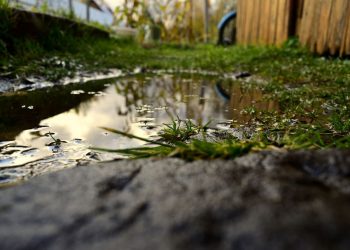As a homeowner, you have a responsibility to maintain your home and land in a reasonable manner to prevent injuries to others. Your level of responsibility can vary depending on the status of a person who enters your property and the law in your state. In some states, a homeowner has more of a legal duty to protect guests who are invited to dinner than a stranger who trespasses on the property, although a homeowner can still be held liable if a trespasser gets injured.
Responsibility to Invited Guests
Generally speaking, if you invite people to your home and you’re aware of any dangers, such as a slippery floor, a broken step, a damaged sidewalk or an icy driveway, you have a responsibility to inform your guests. If someone gets injured after not being warned of a danger, or because of inadequate lighting, you can be held liable.
Duty to Warn Trespassers of Dangers
You also have a duty of care to trespassers, although you may not be held to as high a standard as you are when it comes to invited guests. If you’re aware of any potential dangers on your property, you have a responsibility to warn anyone who might trespass by posting signs. You’re not legally permitted to create dangerous conditions with the intent to injure trespassers.
The law is stricter when it comes to children who trespass on private property. Kids often don’t understand the dangers around them, so they require an extra duty of care. According to the “attractive nuisance” doctrine, homeowners have a responsibility to identify conditions or structures on their property that can be attractive and potentially dangerous to children, such as pools and trampolines, and to take steps to keep children away from them, such as installing fences. If you have an attractive nuisance in your yard and don’t take reasonable precautions to keep children away and prevent injuries, you can be held liable if a child gets hurt.
Do What You Can to Prevent Foreseeable Injuries
If someone gets injured on your property, you may or may not automatically be considered liable. It depends on your state’s law and the specific circumstances. You have a duty to take reasonable steps to keep your property safe and to warn visitors and potential trespassers of dangers. Your responsibility is even greater if children could be tempted to trespass on your property because they were drawn to something that could be dangerous. Take care of your property and address any potentially hazardous circumstances to prevent unfortunate accidents.
This article is intended for informational purposes only and should not be construed as professional or legal advice.











